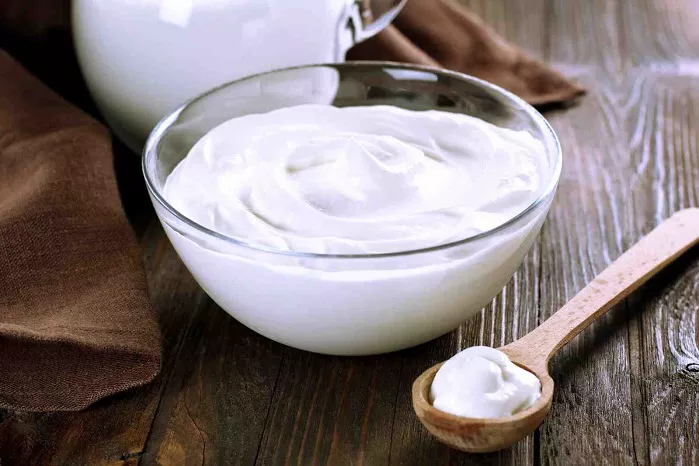Maintaining a heart-healthy diet is crucial for individuals dealing with heart-related issues. A diet tailored to support cardiovascular health involves not only choosing the right foods but also avoiding those that can negatively impact the heart. In this article, we will delve into the top 6 foods to avoid for individuals with a bad heart, shedding light on how dietary choices play a pivotal role in managing heart conditions and promoting overall well-being.
Top 6 Foods to Avoid with a Bad Heart
1. Processed and High-Sodium Foods for Bad Hearts
One of the primary culprits that individuals with a bad heart should steer clear of is processed foods, particularly those high in sodium. High sodium intake can contribute to elevated blood pressure, increasing the strain on the heart. Processed foods, such as canned soups, fast food, and pre-packaged snacks, often contain excessive amounts of sodium to enhance flavor and preserve shelf life.
To maintain heart health, individuals with a bad heart should read food labels diligently, opting for low-sodium alternatives and incorporating fresh, whole foods into their diet. By reducing processed and high-sodium foods, individuals can better manage blood pressure and support their cardiovascular well-being.
2. Saturated and Trans Fats: A Hazard for Bad Hearts
Saturated and trans fats are detrimental to heart health, as they contribute to elevated levels of LDL cholesterol, commonly known as “bad” cholesterol. Foods high in saturated fats include red meat, full-fat dairy products, and certain oils, such as coconut and palm oil. Trans fats, often found in commercially baked goods and fried foods, are known to raise LDL cholesterol while lowering HDL cholesterol, the “good” cholesterol.
Individuals with a bad heart should focus on replacing saturated and trans fats with heart-healthy fats, such as those found in avocados, nuts, and olive oil. Adopting a diet low in these harmful fats supports overall cardiovascular health and helps manage cholesterol levels.
3. Excessive Added Sugars: Detrimental for Bad Hearts
Excessive consumption of added sugars poses a significant threat to heart health. Diets high in added sugars have been linked to obesity, insulin resistance, and an increased risk of heart disease. Sugary beverages, candies, baked goods, and processed snacks are common sources of added sugars that can contribute to inflammation and metabolic issues.
For individuals with a bad heart, minimizing the intake of added sugars is crucial. Opt for naturally sweet alternatives like fruits and limit the consumption of sugary beverages. A diet rich in whole foods, low in processed sugars, contributes to better blood sugar control and overall heart health.
4. Red Meat: A Consideration for Those with Bad Hearts
While red meat is a valuable source of protein and essential nutrients, individuals with a bad heart need to consume it in moderation. Red meat, particularly processed and fatty cuts, can be high in saturated fats, which, as mentioned earlier, can elevate LDL cholesterol levels.
Consider incorporating lean protein sources, such as poultry, fish, and plant-based alternatives, into your diet. If you choose to consume red meat, opt for lean cuts and practice moderation. This approach ensures a balance between meeting nutritional needs and supporting heart health.
5. Highly Processed and Refined Carbohydrates: A Risk for Bad Hearts
Highly processed and refined carbohydrates, such as white bread, white rice, and sugary cereals, can contribute to inflammation, insulin resistance, and weight gain – all factors that can negatively impact heart health. These carbohydrates have a high glycemic index, causing rapid spikes and crashes in blood sugar levels.
To support a bad heart, focus on incorporating whole grains, such as brown rice, quinoa, and oats, into your diet. These complex carbohydrates provide sustained energy and contribute to better blood sugar control. Additionally, prioritize sources of dietary fiber from fruits, vegetables, and legumes to promote digestive health and overall heart well-being.
6. Excessive Alcohol: A Concern for Those with Bad Hearts
While moderate alcohol consumption has been associated with certain heart benefits, excessive alcohol intake can have detrimental effects on cardiovascular health. Heavy drinking can contribute to high blood pressure, irregular heartbeats, and cardiomyopathy, a condition where the heart muscle weakens.
Individuals with a bad heart should consult with their healthcare provider regarding alcohol consumption. If alcohol is consumed, it should be done in moderation, adhering to recommended guidelines. Moreover, it’s crucial to be aware of any potential interactions between alcohol and medications prescribed for heart conditions.


























